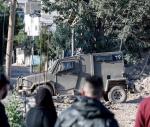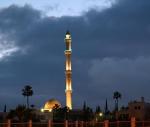You are here
The Mashreq needs a new vision
Jan 13,2025 - Last updated at Jan 13,2025
The Arab East is a mess—weak, divided, directionless, locked in conflicts, and lacking control of its destiny. Various non-Arab powers have long preyed off the region in pursuit of their own aspirations, making Arabs consistently the victims of others’ manipulation.
One century ago, the Arab East was caught between the colonial designs and greed of the British and French seeking control of oil, the Eastern Mediterranean, and the Suez Canal. These colonial powers carved up the region creating states out of whole cloth with imposed forms of governance, planting the seeds of conflict that have born bitter fruit ever since. Palestinians were dispossessed and dispersed. The Kurds were cut off from one another among four rival states. The French ushered in a sectarian state in Lebanon, while Syria and Iraq had imposed monarchies which ultimately gave way to ideological military coups that masked sectarianism.
During the Cold War, the Arab East was a platform for US-Soviet competition, with Soviets supporting the region’s “revolution movements” and “anti-imperialist” military regimes, and the US cultivating its client-state Israel, allies among the monarchies wanting stability, and sectarian groups seeking to preserve their influence.
After the Cold War, particularly after 9/11, the US overplayed its hand with its invasion and occupation of Iraq, ideology-driven advocacy of democratization, and embrace and empowerment of Israeli ambitions. The result was a diminished role for the US, which lost treasure, troops, and prestige attempting to create a client-state in Iraq, and the emboldening of non-Arab regional powers trying to expand regional influence.
Now in the wake of wars in Gaza and Lebanon and the Assad regime’s fall in Syria, the Russians and the US continue to meddle, but the region’s newly emergent overseers are Israel, Iran, and Turkey.
Israel’s Prime Minister Benjamin Netanyahu megalomaniacally describes his country’s dominant regional role, while ignoring that Israel’s position is entirely based on US support. Despite claims of fighting and winning on seven fronts, saving the West from Islamic extremism, he’s operating without restraint, genocidally transforming much of Gaza into a no-man’s land, with permanent bases as signs of permanent conquest. Israeli forces are doing much the same in Syria. And Israel clearly intends to violate the ceasefire agreement in Lebanon, retaining a presence in the south.
Iran, undoubtedly weakened by its losses, especially in Lebanon and Syria, still retains some support in Lebanon and Syria, and deep involvement in Iraq and Yemen.
While Iran’s axis of resistance may be weakened, Turkey and its support for the region’s Islamic movements has emerged as the new factor in Syria and the Arab East’s political equation. This development’s impact on empowering ideological Muslim affiliates in neighbouring states remains unclear, as is the reaction of religious/ethnic minority communities who may reasonably be wary of Turkey’s potentially Ottoman Empire-like ambitions.
The fate of Palestinians and Kurds, major victims of the British/French machinations, remain unresolved and impossible to ignore.
The Kurdish nation was forcibly separated into four portions and incorporated into Iran, Iraq, Syria and Turkey. Today’s major flashpoint is the Kurdish region of Syria, backed by the US, facing resistance by Turkey fearing a threat to continued control of Kurds in Turkey.
Israel’s continuing genocide in Gaza and intensified oppression of Palestinians in Jerusalem and the West Bank fuels greater Palestinian resistance and contributes to Israel’s isolation.
Some blame the Arabs of the East for this mess, pointing to sectarianism or absence of leadership, but that’s victim-blaming. External manipulation created the existing divisions, and past movements to create broadly-based unity based on a non-sectarian identity were crushed or exploited by similar external forces.
Now, Arabs must take control of their destiny, disallowing the Arab East to be a playground for non-Arabs competing for their own ends. A starting point would be for the Gulf Arab states, a current locus of Arab strength, to convene a summit and lay out a vision for the future coupled with demands:
- a hands-off policy for non-Arab states, making future relations contingent on adherence;
- a vision of non-sectarian Arab unity within each of the Mashreq’s states;
- an end to Israeli occupation, expansionism, and aggression;
- full self-determination for the Palestinian people and an end to regional countries’ denial of the Kurdish people’s rights; and
- the creation of working groups to study how to make these goals possible.
With much accrued damage to be undone, it won’t happen overnight. But if a new vision isn’t developed, backed up by steps to translate it into reality, the region will continue to be crippled by division and external manipulation.
The writer is president of the Washington-based Arab American Institute















Add new comment